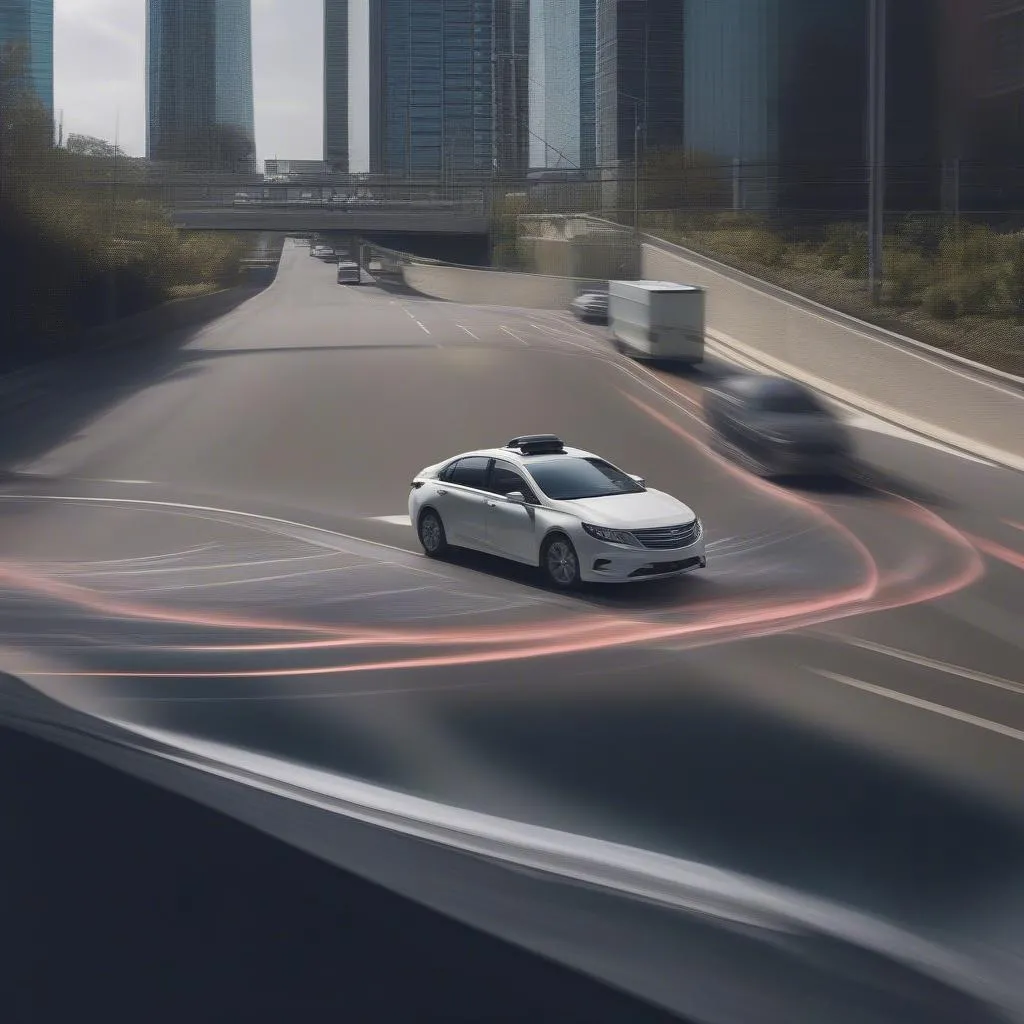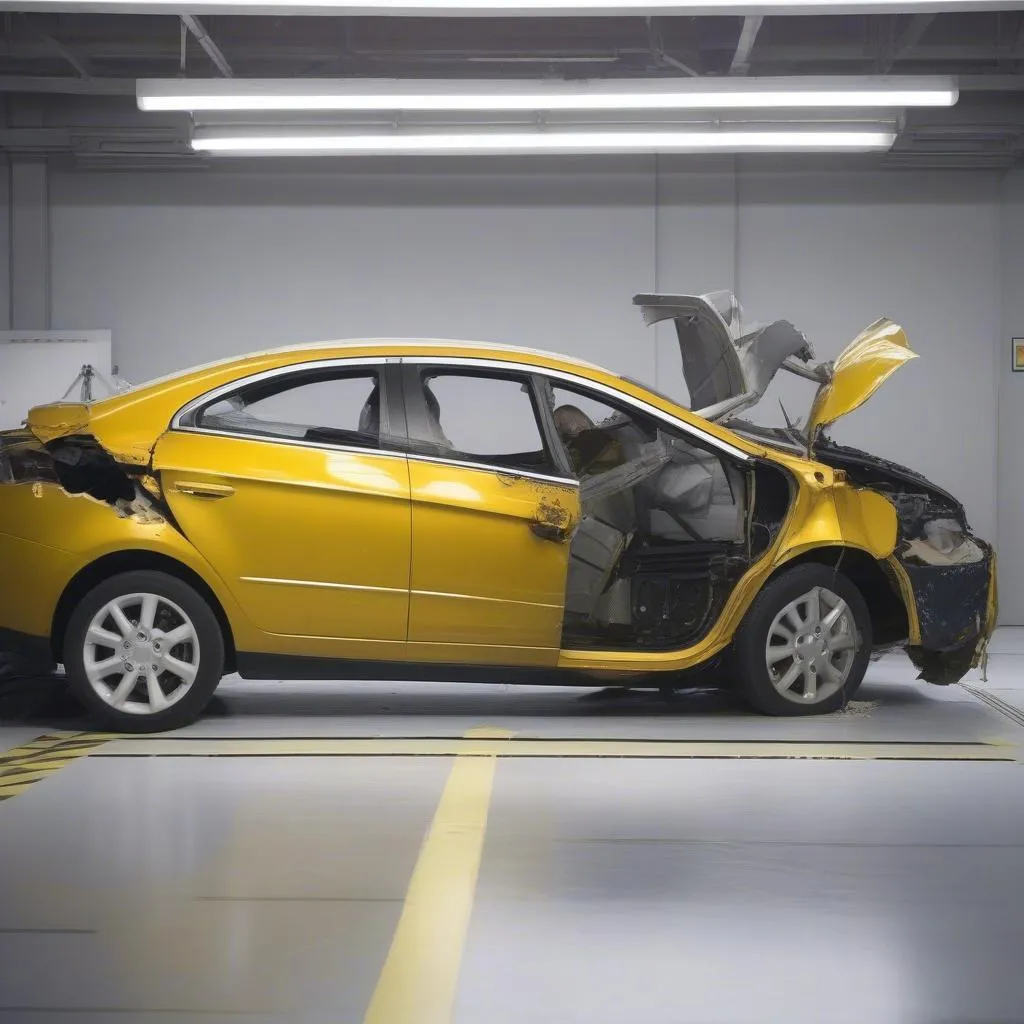Imagine you’re driving down a busy city street, and suddenly, a car pulls out in front of you. You slam on your brakes, but you’re not able to avoid a collision. You’re thankful for your seatbelts, but you can’t help but wonder what would have happened if your car had more safety features. This is a scenario that many of us can relate to, which is why finding a safe car is so important.
What Makes a Car Safe?
Safe cars are more than just sturdy vehicles with airbags. They are equipped with a plethora of features designed to protect occupants in the event of a crash. Here are some key elements that contribute to a car’s safety:
Safety Ratings and Testing
The most important factor to consider is the car’s safety rating, which is determined by independent organizations like the National Highway Traffic Safety Administration (NHTSA) and the Insurance Institute for Highway Safety (IIHS). These organizations conduct rigorous crash tests to evaluate the performance of different vehicles in various scenarios.
Safety Features
Modern cars are equipped with a wide array of safety features, including:
- Airbags: These inflatable cushions deploy in a collision, providing a cushion between the occupants and the interior of the vehicle.
- Anti-lock Braking System (ABS): This system helps prevent the wheels from locking up during braking, allowing the driver to maintain steering control.
- Electronic Stability Control (ESC): ESC helps the driver maintain control of the vehicle, especially during slippery conditions.
- Forward Collision Warning (FCW): This system alerts the driver if the vehicle is getting too close to the car in front of it.
- Automatic Emergency Braking (AEB): AEB can automatically apply the brakes if a collision is imminent.
- Lane Departure Warning (LDW): LDW alerts the driver if the vehicle starts to drift out of its lane.
- Lane Keep Assist (LKA): LKA can help the driver stay centered in the lane.
- Adaptive Cruise Control (ACC): ACC automatically adjusts the speed of the vehicle based on the traffic conditions.
- Blind Spot Monitoring (BSM): BSM alerts the driver to vehicles in the blind spots.
- Rear Cross-Traffic Alert (RCTA): RCTA warns the driver of approaching traffic when reversing.
Vehicle Construction and Design
The way a car is built also plays a vital role in its safety. Modern vehicles are designed to absorb energy in a crash, which helps protect occupants from serious injuries. For example, crumple zones in the front and rear of the vehicle are engineered to collapse in a controlled manner, absorbing the force of an impact.
What are the Safest Cars on the Market?
Deciding on the safest car is like choosing the best food – personal preferences matter. Different people have different needs and priorities. However, based on safety ratings and features, some of the safest cars on the market today include:
- Honda Accord: The Honda Accord consistently ranks high in safety ratings, and it comes standard with a wide range of safety features, including Honda Sensing, which includes AEB, FCW, LDW, and ACC.
- Toyota Camry: Another reliable option, the Toyota Camry offers strong safety ratings and a comprehensive suite of safety features, including Toyota Safety Sense 2.5, which includes AEB, FCW, LDW, and ACC.
- Subaru Legacy: The Subaru Legacy is known for its all-wheel drive system, which can improve stability and control, especially in winter conditions. It also has good safety ratings and a range of standard safety features.
- Tesla Model 3: Tesla vehicles have earned high safety ratings and are equipped with advanced safety features like Autopilot, which offers lane keeping, adaptive cruise control, and automatic emergency braking.
- Volvo XC40: Volvo has a reputation for safety, and the XC40 is no exception. It’s a smaller SUV that offers a range of safety features and consistently ranks well in safety tests.
What About Used Cars?
You might be thinking, “What about used cars? Are they safe?” Absolutely! While it’s important to consider the age and condition of a used car, you can still find safe options.
How to Find a Safe Used Car
- Research: Before you even start looking, use resources like the NHTSA’s Vehicle Safety website and the IIHS website to see which models have good safety ratings.
- Thorough Inspection: Always have a mechanic inspect a used car before you buy it. They can look for signs of damage or wear and tear that could compromise the car’s safety.
- Maintenance Records: Request the previous owner’s maintenance records. A car that has been regularly maintained is likely to be safer than one that hasn’t.
- Safety Features: Look for a used car that has features like airbags, anti-lock brakes, electronic stability control, and any other safety features that are important to you.
- Look for “Safe” Certifications: Some used car dealerships offer certifications that assure that the car has been inspected for safety and meets specific safety standards.
Frequently Asked Questions About Safe Cars
- Q: What is the most important safety feature?
A: It’s impossible to say definitively which feature is the most important. However, the NHTSA and IIHS have identified several features that have been proven to significantly reduce the risk of crashes and injuries, such as AEB, FCW, LDW, and ESC.
- Q: How can I tell if a car has safety features?
A: You can find information about the safety features of a car by looking at the car’s owner’s manual, online, or by contacting the manufacturer. Many car manufacturers have websites where you can search for safety information.
- Q: Is it worth spending extra for a car with safety features?
A: This is a personal decision, but the answer is generally yes. Safety features can help protect you and your loved ones in a crash, and they may also lower your insurance premiums.
Are you interested in learning more about keeping your car safe?
We recommend checking out our articles on dash cameras for cars and FLX Assist Scan Tool Software.
We also have articles about specific car models, such as the Pilot SUV car and JDM cars, which you may find helpful.
Need Help with Your Car?
We understand the importance of keeping your car safe.
If you need assistance with installing automotive diagnostics software or have any questions about your car’s safety, don’t hesitate to reach out to our team of experts.
We offer 24/7 support via WhatsApp: +84767531508.
 Car Safety Features
Car Safety Features
 Crash Test
Crash Test
Stay safe and drive responsibly!


